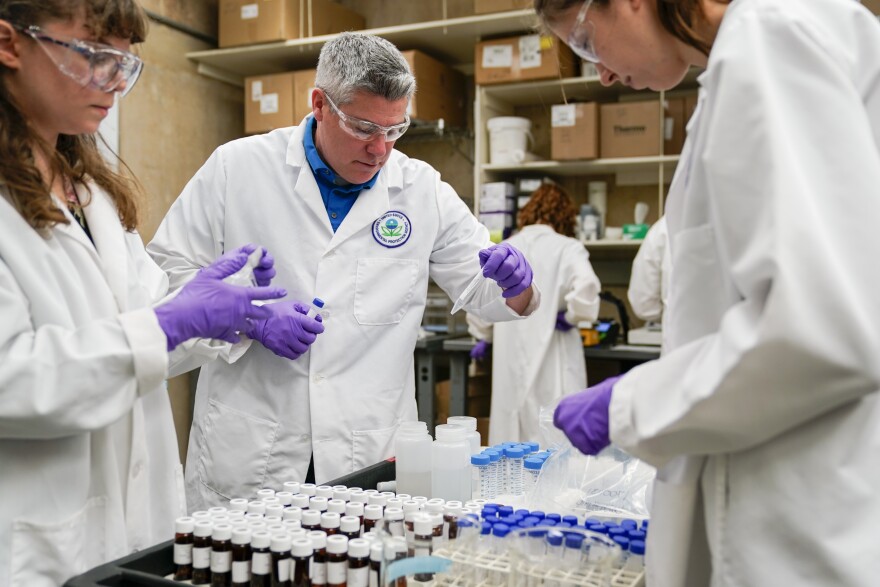State lawmakers are eyeing reforms on chemical contaminants allowed in pesticides at the Statehouse this year.
A group of mostly Progressive and Democratic lawmakers in the Vermont House introduced a bill this week to ban seeds coated with neonicotinoid pesticides.
As the plants mature, the active compounds in the pesticide get into the plant's tissues, including its pollen, where bees pick it up.
Andrew Munkres, a former president of the Vermont Beekeepers Association, told lawmakers that beekeepers support a ban, and are struggling due to a confluence of factors: climate change, habitat loss, pesticides and invasive parasites and pathogens.
He says neonicotinoids are part of the problem.
"The pesticides obviously are designed to kill insects. And as a beekeeper, I'm an insect farmer. And so I'm trying to raise an animal that other farmers are trying to kill, or at least is in the same class as other insects that are being killed by pesticides," Munkres said in his testimony to the House Committee on Agriculture and Forestry. "And so, we get caught up as collateral damage."
More from Vermont Edition: Are Vermont bees thriving or dying? Depends who you ask
The province of Quebec banned coated seeds in 2019. And Munkres says they've seen some indication that pollinator populations are beginning to bounce back there.
However, neonicotinoid pesticides linger in the soil and air, so it's likely it would take some time for pollinators here to benefit from a hypothetical ban.
Researchers at the University of Vermont Extension are conducting experiments to investigate how effective coated seeds are in comparison to non-coated seeds.
Heather Darby, a professor leading the research, told lawmakers that coated seeds became ubiquitous for corn and soybeans in Vermont in the mid-2000s, though their use has been on the rise since the 1990s.
Neonicotinoids are used to kill pests like seedcorn maggots and apple maggot flies.
Data from the Agency of Agriculture shows 99% of corn seeds in Vermont are coated right now.

And though he doesn't use coated seeds and supports restrictions on prophylactic pesticide use, Barney Hodges of Sunrise Orchards in Cornwall urged caution.
"Eliminating a class of pesticides can have repercussions or collateral damage that causes farmers to use other lethal pesticides that might be more broadband in their mode of action," Hodges told lawmakers in the same committee.
He asked them to protect fruit and vegetable farmers' ability to spray their crops selectively.
He says farmers will need outreach and education to helm them find other ways to manage pests.
Bills target PFAS in pesticide containers and other products
In a related effort, a coalition of grassroots environmental groups is calling for lawmakers to restrict so-called "forever chemicals" and pesticides in Vermont.
The EPA has said that virtually no exposure to toxic PFAS chemicals is safe.
The chemicals are often used in consumer products for grease resistance and waterproofing and are very hard to destroy.
Two major bills this session — S.25 and S.197 — would restrict them in personal care products and create a registry for health impacts from them. The latter bill would also restrict the containers that pesticides can be stored in, to limit how much PFAS are spread through spraying and other agricultural applications.

Marguerite Adelman is with the Vermont PFAS/Military Poisons Coalition and was at the Statehouse on Tuesday calling on lawmakers to ban all PFAS in Vermont by 2030.
"We are not on this planet to protect the global chemical industry," she said. "We are here to protect people and living things and to protect our planet as well as our future generations."
The environmental groups also called for lawmakers to require Vermont reduce half of its pesticide use by 2050. And they support the bill that would ban neonicotinoid pesticides from seeds in the state.
Have questions, comments or tips? Send us a message.





